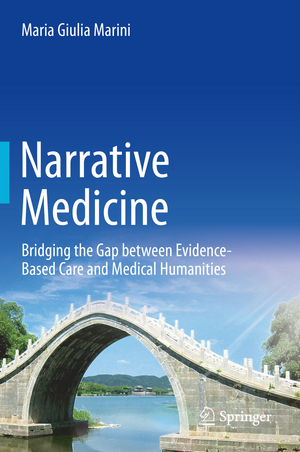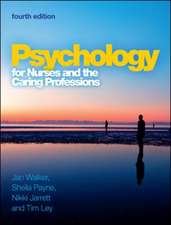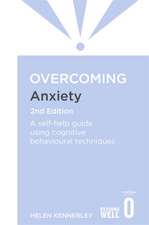Narrative Medicine: Bridging the Gap between Evidence-Based Care and Medical Humanities
Autor Maria Giulia Marinien Limba Engleză Hardback – 12 oct 2015
“Maria Giulia Marini takes a unique and innovative approach to narrative medicine. She sees it as offering a bridge – indeed a variety of different bridges – between clinical care and ‘humanitas’. With a sensitive use of mythology, literature and metaphor on the one hand, and scientific studies on the other, she shows how the guiding concept of narrative might bring together the fragmented parts of the medical enterprise”.
John Launer, Honorary Consultant, Tavistock Clinic, London UK
| Toate formatele și edițiile | Preț | Express |
|---|---|---|
| Paperback (1) | 329.90 lei 22-36 zile | +15.20 lei 6-12 zile |
| Springer International Publishing – 23 aug 2016 | 329.90 lei 22-36 zile | +15.20 lei 6-12 zile |
| Hardback (1) | 500.59 lei 38-44 zile | |
| Springer International Publishing – 12 oct 2015 | 500.59 lei 38-44 zile |
Preț: 500.59 lei
Preț vechi: 526.93 lei
-5% Nou
Puncte Express: 751
Preț estimativ în valută:
95.79€ • 100.28$ • 79.26£
95.79€ • 100.28$ • 79.26£
Carte tipărită la comandă
Livrare economică 02-08 aprilie
Preluare comenzi: 021 569.72.76
Specificații
ISBN-13: 9783319220895
ISBN-10: 3319220896
Pagini: 150
Ilustrații: XVII, 150 p.
Dimensiuni: 155 x 235 x 15 mm
Greutate: 0.48 kg
Ediția:1st ed. 2016
Editura: Springer International Publishing
Colecția Springer
Locul publicării:Cham, Switzerland
ISBN-10: 3319220896
Pagini: 150
Ilustrații: XVII, 150 p.
Dimensiuni: 155 x 235 x 15 mm
Greutate: 0.48 kg
Ediția:1st ed. 2016
Editura: Springer International Publishing
Colecția Springer
Locul publicării:Cham, Switzerland
Public țintă
Professional/practitionerCuprins
1 Evidence Based Medicine and Narrative Medicine: a harmonic couple.- 2 Bridging from mythology to contemporary care: the art of listening.- 3 Bridging from oral tradition to writing: the art of empathy.- 4 The tower of Babel: the language of physicians, patients and providers of care.- 5 Patient narrative as a probe for successful coping.- 6 The muted desire for well-being and the abuse of the word “normality” in medicine.- 7 Bridging the gap between personalization of care and research.- 8 The industry of illness-centered movies in medical humanities.- 9 Designing health care based on patient’s needs and rights.- 10 Building a bridge between economic investment and medical humanities: the fears to overcome.- 11 A selection of narratives.
Recenzii
“Examining some of narrative medicine’s foundational ideologies, Maria Giulia Marini discusses the epistemological value of interdisciplinary connectedness in ‘Narrative Medicine: Bridging the Gap between Evidence-Based Care and Medical Humanities’. … the book holds interesting ideas for medical humanities to further explore. … The book is intended for a wide readership, and different audiences may benefit from various portions of the material.” (Sandra Weems and Paulette Hahn, Centre for Medical Humanities, centreformedicalhumanities.org, May, 2016)
“The book has a high value for the contents, and the merit to spread Narrative Medicine out of circumscribed environments, potentially communicating with anybody, in Italy and worldwide. … ‘Narrative Medicine. Bridging the Gap between Evidence-Based Care and Medical Humanities’ is an unique work for the analysis of the sustainability of an humanistic approach … . We wish this book will be read by patients, caregivers, doctors, nurses, social workers, psychologists … .” (Stefania Polvani, MedicinaNarrativa.eu, April, 2016)
“The book has a high value for the contents, and the merit to spread Narrative Medicine out of circumscribed environments, potentially communicating with anybody, in Italy and worldwide. … ‘Narrative Medicine. Bridging the Gap between Evidence-Based Care and Medical Humanities’ is an unique work for the analysis of the sustainability of an humanistic approach … . We wish this book will be read by patients, caregivers, doctors, nurses, social workers, psychologists … .” (Stefania Polvani, MedicinaNarrativa.eu, April, 2016)
Textul de pe ultima copertă
This book examines all aspects of narrative medicine and its value in ensuring that, in an age of evidence-based medicine defined by clinical trials, numbers, and probabilities, clinical science is firmly embedded in the medical humanities in order to foster the understanding of clinical cases and the delivery of excellent patient care. The medical humanities address what happens to us when we are affected by a disease and narrative medicine is an interdisciplinary approach that emphasizes the importance of patient narratives in bridging various divides, including those between health care professionals and patients. The book covers the genesis of the medical humanities and of narrative medicine and explores all aspects of their role in improving healthcare. It describes how narrative medicine is therapeutic for the patient, enhances the patient–doctor relationship, and allows the identification, via patients' stories, of the feelings and experiences that are characteristic for eachdisease. Furthermore, it explains how to use narrative medicine as a real scientific tool. Narrative Medicine will be of value for all caregivers: physicians, nurses, healthcare managers, psychotherapists, counselors, and social workers.
“Maria Giulia Marini takes a unique and innovative approach to narrative medicine. She sees it as offering a bridge – indeed a variety of different bridges – between clinical care and ‘humanitas’. With a sensitive use of mythology, literature and metaphor on the one hand, and scientific studies on the other, she shows how the guiding concept of narrative might bring together the fragmented parts of the medical enterprise”.
John Launer, Honorary Consultant, Tavistock Clinic, London UK
“Maria Giulia Marini takes a unique and innovative approach to narrative medicine. She sees it as offering a bridge – indeed a variety of different bridges – between clinical care and ‘humanitas’. With a sensitive use of mythology, literature and metaphor on the one hand, and scientific studies on the other, she shows how the guiding concept of narrative might bring together the fragmented parts of the medical enterprise”.
John Launer, Honorary Consultant, Tavistock Clinic, London UK
Caracteristici
Helps readers to employ narrative medicine to improve patient care and the health care system Explains how to use narrative medicine as a real scientific tool Contains a glossary and tools to interpret patients stories











![Promoting Psychological Well-Being in Children with Acute and Chronic Illness: A Step-By-Step Resource [With CD (Audio)]](https://i2.books-express.ro/bt/9781843109679/promoting-psychological-well-being-in-children-with-acute-and-chronic-illness.jpg)

